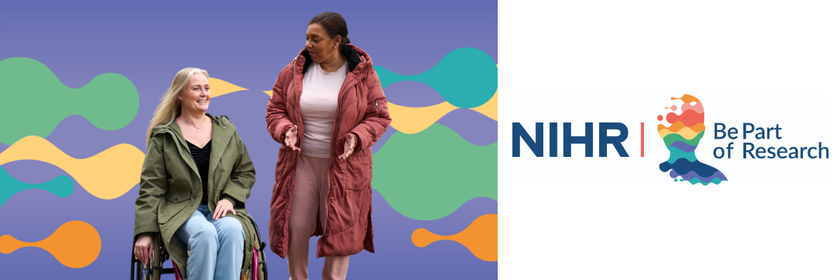The National Institute for Health and Care Research (NIHR) aims to improve the health and wealth of the nation through research.
They deliver this mission through 6 core workstreams.
- Funding high quality, timely research that benefits the NHS, public health and social care. Explore NIHR research funding (opens in a new tab)
- Investing in world-class expertise, facilities and a skilled delivery workforce to translate discoveries into improved treatment. Explore their world-leading facilities and expertise (opens in a new tab)
- Attracting, training and supporting the best researchers to tackle complex health and social care challenges. Explore their training schemes and programmes (opens in a new tab) and the NIHR Academy (opens in a new tab)
- Impact. Explore more about NIHR impact (opens in a new tab)
- Partnering with patients, service users, carers and communities to improve the relevance, quality and impact of research. Explore how the NIHR partner with the public (opens in a new tab)
- Funding applied global health research and training to meet the needs of the poorest people in low and middle income countries. Explore Global Health (opens in a new tab)

Biomedical Research Centres
NIHR's 20 Biomedical Research Centres (BRCs) (opens in a new tab) are networks of experts that work collaboratively between NHS trusts and internationally renowned universities. They facilitate early stage experimental medicine research and support the translation of scientific discoveries.
Each BRC provides expertise across a broad range of health and disease areas. Their work is structured around a number of cross-cutting themes, including:
- Genomics
- Multimorbidity
- Data and digital health
- Imaging
- Immunology
- Precision medicine
- Rare diseases
The BRCs in our region:
Research Delivery Networks
The RDN is funded by the Department of Health and Social Care (DHSC) to enable the health and care system to attract, optimise and deliver research across England. It replaced the Clinical Research Network (CRN) on 1 October 2024.
It consists of 12 Regional Research Delivery Networks (RRDNs) and a Coordinating Centre (RDNCC), working together as one organisation with joint leadership. The remit of the RDN is to:
- support the delivery of research which has been funded by the NIHR, research charities, other public funders and the life sciences industry
- increase capacity and capability to deliver research for the future across clinical, public health and social care research in hospital, primary care, community and residential settings
The RDNs in our region:
Clinical Research Facilities
NIHR's 28 Clinical Research Facilities (CRFs) are purpose-built facilities in NHS hospitals where researchers can deliver early-phase and complex experimental studies. They offer a range of services to help researchers and life science organisations to design and deliver these clinical trials.
The CRF teams have a proven track record of helping to deliver a wide range of research. Researchers funded by the NIHR, the life sciences industry and other organisations can access assistance from skilled CRF clinical trial support staff, from study design to data collection and study management. This includes specialist world-leading expertise in specific therapeutic areas, highly specialised equipment and facilities, access to patient populations and patient and public advocates.
CRFs in our region:

NIHR Be Part of Research
Be Part of Research (opens in a new tab) is a free service which makes it easy to find and take part in vital health and care research across the UK.
Patients and the public can search for a health condition they are interested in, and the service will match them to suitable studies and send them information on how to take part.
They also offer support and information for researchers (opens in a new tab) including:
- How our service works including how they can help you recruit to your study (opens in a new tab) through their UK-wide registry.
- How studies are listed on their site (opens in a new tab) and how to update your study information
- Case studies explaining how they have helped support recruitment (opens in a new tab) to a range of studies - from large-scale interventional trials to lifestyle questionnaires.

